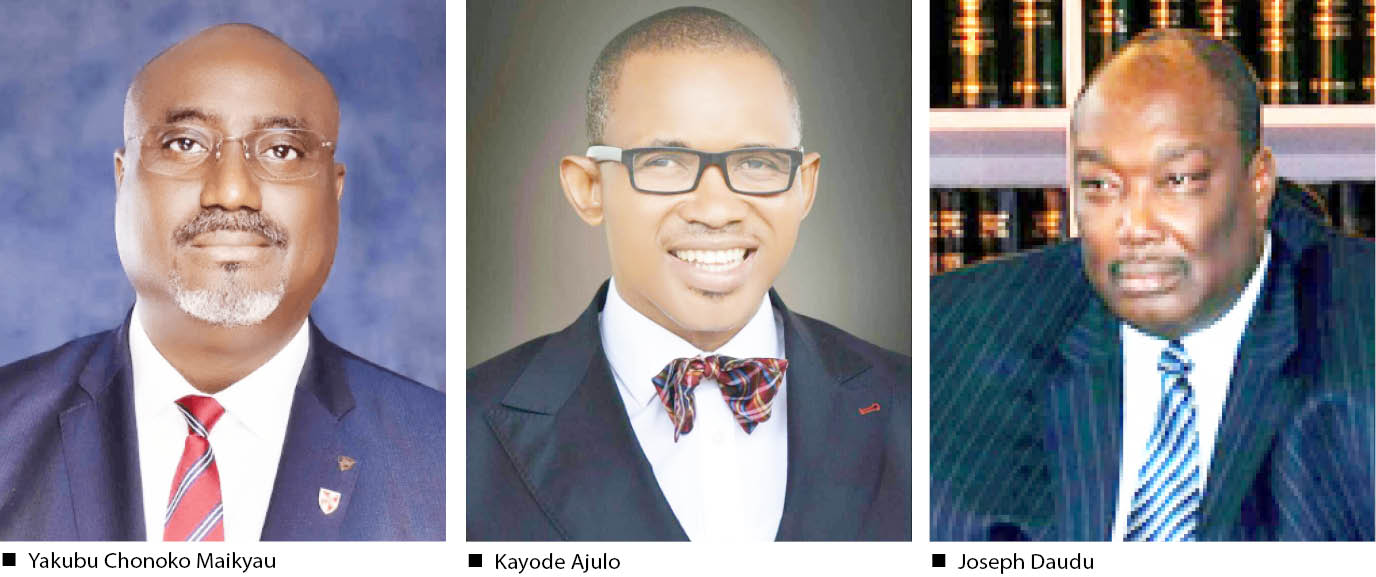Further findings have revealed details of the controversy that greeted the recent agreement between the UK and Nigeria tagged the Enhanced Trade Investment Partnership (ETIP) among lawyers in Nigeria.
Increasing pressure from members of the executive arm of government at state and federal levels and the inadequate understanding of the benefits of the arrangement may have accounted for its rejection by Nigerian lawyers.
The agreement was signed by the UK Secretary of State for Business and Trade, Kemi Badenoch, and the Nigerian Minister of Trade, Investment and Industries, Doris Uzoka-Anite, in Abuja on February 13.
The announcement of the minister that the deal will open up Nigeria for UK-qualified lawyers to practice triggered concerns and reactions from lawyers as some felt it would rob Nigerian lawyers of their jobs.
Following the signing of the deal, the British High Commission Nigeria, in a press statement said “The Enhanced Trade and Investment Partnership (ETIP) is the first the UK has signed with an African country and is designed to grow the UK and Nigeria’s already thriving trading relationship, which totalled £7 billion in the year to September 2023.”
According to the high commission, the arrangement will pave the way for opportunities in sectors crucial to both economies such as finance and legal services as well as foster new collaborations in innovative areas like the creative industry.
“I’m delighted to be here to sign our new enhanced partnership which will allow UK firms to export their world-class goods and services more easily and expand their footprint in Nigeria,” Ms Badenoch said.
Similarly, Ms Uzoka-Anite said, “This partnership will see Nigeria-UK relations move beyond one of shared history and strong ties to one of shared economic prosperity: From increasing market access and supporting our vibrant businesses to creating more jobs and accelerating greater investments in sectors of mutual interests.”
The minister later clarified that the statement was made in error as it was not intended to deny Nigerian lawyers their jobs.
However, the suggestion did not go down well with the Nigerian Bar Association (NBA) which believes that any move that would encourage British-trained lawyers’ access to the Nigerian legal market will rob-off negatively on local practitioners.
The President of the NBA, Yakubu Maikyau (SAN), said “Irrespective of the minister’s clarification, we want to state clearly that the objection of the NBA to the said agreement persists. The NBA has been involved in several meetings where the idea of allowing UK-licensed lawyers in our legal space was discussed.
“We are therefore very clear about the intention of the agreement. In all these meetings we unequivocally said that the state of the Nigerian economy presently does not allow for such an agreement.
“The government is saddled with the responsibility of creating opportunities not only for its more than 140,000 lawyers currently practising across the country but also for the over 4000 new wigs that are called to the bar yearly.
“Only yesterday, the Council of Legal Education approved the result of the last Bar Final Examination with over 4000 lawyers due to be admitted to the Bar in March 2024. It is very sad that while the UK government is creating opportunities for its lawyers outside the United Kingdom, the Government of Nigeria by its action or omission seeks to shrink the legal space for an already burdened legal practice.
“What efforts has the government of Nigeria made to ensure that Nigerian lawyers have access to the UK legal environment? What is even more tragic is that the agreement was entered into without engaging the NBA on the text of the agreement. This is a clear indication of the limited recognition the Government of Nigeria attaches to its professional bodies.
“We are certain that the UK government will not treat its law society and bar council in such a despicable manner. For avoidance of doubt, let me say clearly, that the NBA rejected the agreement insofar as it relates to legal services. We fully intend to seek judicial review of the agreement including up to the Supreme Court if necessary.
“This is the same situation as with the African Continental Free Trade Agreement (AfCFTA). While we must accept the reality of globalisation and open our borders for transnational trade and exchange of services, this must be done strategically, purposefully, without and endangering the already exposed and weakened Nigerian market.
“We therefore request a holistic review of all the agreements under the ETIP and the AfCFTA, particularly given the developments in the ECOWAS sub-region.
“In addition, we have begun the process of mobilizing our members for a possible nationwide public demonstration in objection to this agreement.”
Deal adds to pressures on lawyers’ source of livelihood
Explaining why lawyers are wary of the ETIP deal, a former president of the NBA, Joseph Daudu (SAN), expressed concern that lawyers are watching helplessly while their source of livelihood is being taken away under the latest agreement.
He enumerated three events that showed that the legal profession is under siege as the ETIP agreement, the order of an Enugu State High Court for lawyers to attach their tax clearance certificate to every process filed in court, and the now suspended bill seeking to compel lawyers to declare their professional fee and pay a mandatory percentage as tax to the government outside of the personal income tax, VAT and withholding tax already being collected.
“Yet my brethren are quiet. These proposals demonstrate if we don’t know already that there is a concerted and daring assault on the legal profession among other professions in Nigeria,” he said.
“Naturally, we might be tempted to see these measures as hare-brained schemes that will not go anywhere but this is how it starts, and before we know it, haters of lawyers would have legislated us out of economic and socio-political relevance.”
Similar deals favourable to Commonwealth practitioners
A practising solicitor in England & Wales, Olubi Adejobi, in his reaction, said the assertion that the agreement will rub lawyers of their source of livelihood was wrong as many Commonwealth Common Law English-speaking jurisdictions, including Canada, Ghana and South Africa, have ease of access arrangements allowing overseas qualified lawyers into their jurisdictions, and wondered why a country such as Nigeria would not tow such path.
Adejobi stressed that quicker resolution and adjudication of disputes would be among the benefits if Nigeria came on board the agreement.
“My view is that mutual professional ease of access arrangements is a tide that, ultimately, lifts all the boats in each jurisdiction, particularly in the Nigeria jurisdiction,” he said.
Similarly, Dr Olukayode Ajulo (SAN) said the agreement, which was meant to foster collaboration in various sectors, including finance, trade barriers, healthcare, investment, customs and trade facilitation, agriculture, intellectual property, creative industry and legal services, has given rise to speculations.
“It is important to note that the legal profession in Nigeria is regulated by statutes and subject to specific regulations. Sections 8(1) and (2) of the Legal Practitioners Act Cap L11, LFN, 2004 establish that a “legal practitioner” has the right to represent clients in all Nigerian courts, contingent upon the payment of annual practising fees,” he said.
He said the legal profession in Nigeria is already founded on strong principles that cannot be affected by such deals as alleged by some lawyers.



